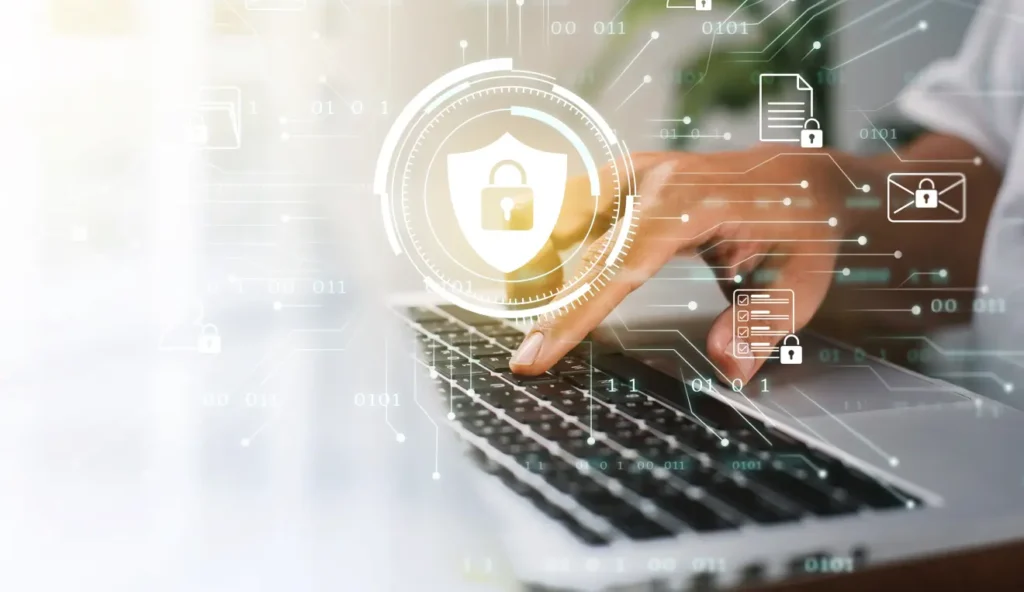Power of encryption – Securing your digital notes

As we increasingly rely on digital devices and cloud-based services for our daily activities, the risk of data breaches and access to sensitive information looms larger than ever before. The most effective way to protect our digital assets, particularly our notes and journals, is through the implementation of encryption technology secure and inaccessible to potential intruders.
Art of Scrambling Data
Encryption is the process of encoding data in an unintelligible to the proper decryption key or password. This transformation occurs through the use of complex mathematical algorithms and cryptographic protocols, which essentially scramble the original information into an encrypted format. Without the correct decryption mechanism, the encrypted data appears as a meaningless jumble of characters, rendering it useless to unauthorized parties.
Importance of securing digital notes
Digital notes have become an integral part of our daily routines. Whether we use dedicated note-taking applications, word processors, or simple text editors, these digital documents often contain sensitive information, ranging from personal reflections and creative ideas to confidential work-related details and financial records. Failing to secure these notes has severe consequences, such as identity theft, financial loss, or even reputational damage.
Power of encryption in securing digital notes
Encrypting your digital notes is a robust way to protect your privacy and prevent unauthorized access to your sensitive information. By applying encryption, you transform your notes into an unreadable format, ensuring that even if your device is lost, stolen, or compromised; your data remains safe and inaccessible to potential attackers or malicious actors.
- Privacy protection– Encryption ensures that your thoughts, ideas, and musings remain private and confidential. Whether you’re keeping a personal journal, recording sensitive work-related information, or storing financial details, encryption shields your data from prying eyes, guaranteeing your privacy.
- Data security– In the event of a data breach, lost or stolen device, or cyber-attack, your encrypted notes remain secure. Without the proper decryption key or password, the data is essentially useless to attackers, mitigating the risk of data theft and misuse.
- Compliance and regulatory requirements– Certain industries and professions, such as healthcare, finance, and legal sectors, have strict regulations and compliance requirements regarding data privacy and security. Are safenotes taxable? By encrypting your digital notes you meet these standards, ensuring you adhere to industry best practices and avoid potential legal consequences.
Implementing encryption for your digital notes
Encrypting your digital notes is a straightforward process, and various tools and techniques are available to suit your needs. Here are some common methods to consider:
- Built-in encryption tools– Many note-taking apps and word processors offer built-in encryption features. For example, popular applications like Microsoft Word, Apple Notes, and Google Keep provide options to password-protect or encrypt individual files or entire note collections. These tools often use industry-standard encryption algorithms, such as AES (Advanced Encryption Standard), ensuring a high level of security.
- Third-Party Encryption Software: If your preferred note-taking application lacks built-in encryption capabilities, you explore third-party encryption software. These dedicated tools encrypt files, folders, or entire drives with a single click. Some popular options include VeraCrypt, AxCrypt, and 7-Zip, which offer robust encryption algorithms and user-friendly interfaces.
- Cloud-based note-taking apps with encryption– Several cloud-based note-taking apps, such as Evernote, OneNote, and Simplenote, offer encryption options to secure your notes stored in the cloud. These apps typically use end-to-end encryption; data remains encrypted during transmission and storage on their servers.




